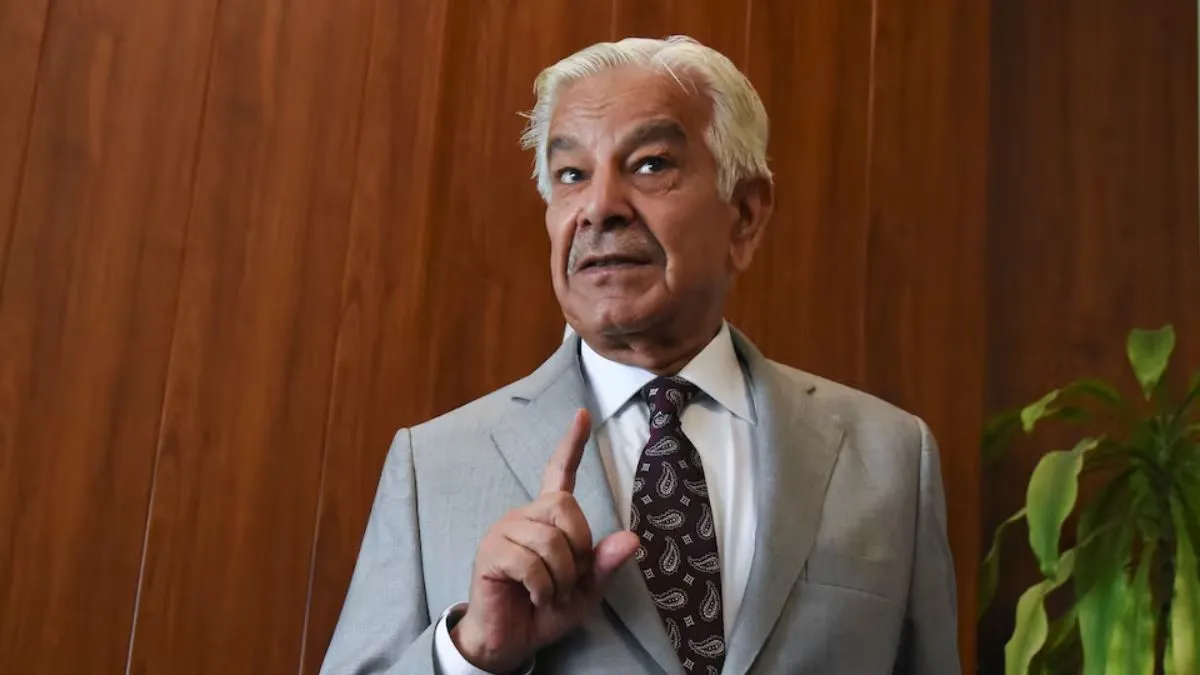- By Supratik Das
- Sat, 20 Sep 2025 10:58 AM (IST)
- Source:JND
Pakistan-Saudi defence pact: Pakistan Defence Minister Khawaja Asif, in a recent interview with Geo News, hinted that Saudi Arabian forces could potentially come to Pakistan’s aid if military tensions with India escalate.
“Yes, absolutely. There is no doubt about it,” Asif said, referring to the joint defence arrangement, emphasizing that the pact acts as an “umbrella” to counter any acts of aggression. He added that the agreement does not specifically target any country. “We have not named any country as the aggressor, nor has Saudi Arabia. This is simply an umbrella arrangement provided by both sides. In case of any aggression, from any country, it will be jointly addressed and defended,” he explained.
Asif highlighted that the pact, signed in Riyadh by Crown Prince Mohammed bin Salman and Pakistan Prime Minister Shehbaz Sharif, is fundamentally defensive rather than offensive. Drawing parallels with NATO’s Article 5, he noted that a military attack on one country would be treated as an attack on both.
Speaking to Reuters, Asif reiterated, “We have no intention of using this pact for any aggression. But if the parties are threatened, then obviously this arrangement will become operative.” He further confirmed that Pakistan’s nuclear arsenal could be made available under the pact, although its stated doctrine limits the use of warheads to India. “Our capabilities will absolutely be available under this pact,” he added.
A senior Saudi official clarified, “This is a comprehensive defensive agreement that encompasses all military means.” Analysts have described the pact as a combination of Saudi financial backing and Pakistan’s nuclear capability, offering strategic benefits to both nations.
Key Features Of Saudi-Pakistan Pact
• Mutual defence pledge: Any assault on the countries will be deemed to be an assault against both.
• All-encompassing coverage: Provides "all military means," without clarifying if Pakistan's nuclear umbrella belongs to the agreement.
• Military approval: The Pakistani army commanders were present during the signing, suggesting institutional endorsement from both countries.
• Strategic timing: The pact was signed just days after Israel's strike in Doha, which exposed the weaknesses of Gulf security.
• Symbolism: For the first time, the custodian of Islam's holiest places has linked its security to the sole Muslim nuclear-armed nation.
India, which has good relations with Riyadh as well as Tel Aviv, has a tricky situation to deal with. India, has stressed that its strategic partnership with Saudi Arabia will continue to reflect “mutual interests and sensitivities.” MEA spokesperson Randhir Jaiswal said, “India and Saudi Arabia have a wide-ranging strategic partnership which has deepened considerably in the last several years. We expect that this strategic partnership will keep in mind mutual interests and sensitivities.”
On the possibility of a broader Arab alliance, Asif remained cautious. “The doors are not closed. I cannot prematurely answer this… but it is a fundamental right of the countries and people here, particularly the Muslim population, to defend their region together,” he said.
